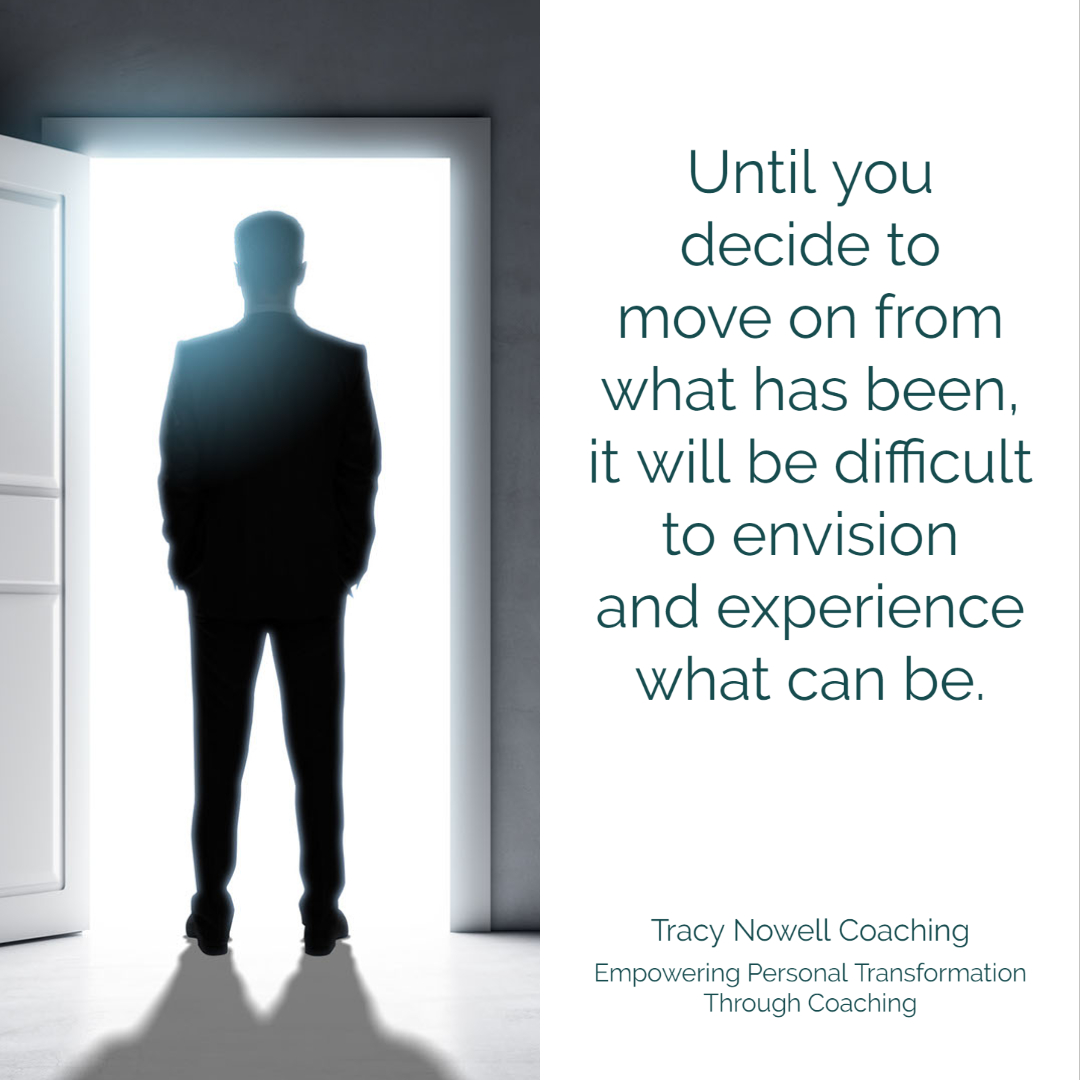Living in the "what has been."

Are you, or have you ever experienced, living in the "what has been?" Sounds kind of strange - doesn't it?
While it might sound strange, when "has been" is combined with "living," from a grammar standpoint, it suggests "an ongoing action that started in the past and continues to the present," according to Grammarly.
And when we live in the "what has been" as we go through phases or changes in life's direction, whether due to circumstances or by choice, the lingering entanglements with the past in the present make moving forward difficult.
These choices or circumstances could include discovering you are on the wrong career path, relocating to a new job, maybe in a different city or state, losing your job, assuming new responsibility or authority, starting or selling a business, or finding a post-retirement career or volunteer activity.
From a personal perspective, it could be the progression from young adulthood to midlife to seasoned or senior, including marriage, kids, divorce, and second marriages, to becoming empty nesters and retiring.
And even though we may choose or accept change, we still operate out of an old, outdated playbook, never truly progressing. We just can't mentally process the reality that change is not only upon us; it's already happening.
It's like standing in the doorway between two realities, "what has been" and "what can be." It's hard to embrace the here and now to move into the future because we have yet to leave behind the influences of or connections to the past.
And the reason we live in the "what has been" while going through change is because we fail to transition.
In his book, Transitions: Making Sense of Life's Changes, William Bridges, author, and organizational consultant, explains the challenge.
"Change is situational. Transition, on the other hand, is psychological. It is not those events but rather the inner reorientation or self-redefinition that you have to go through in order to incorporate any of those changes into your life. Without a transition, a change is just a rearrangement of the furniture. Unless transition happens, the change won't work."
There are three phases of a transition, according to Bridges –
Endings – "Transitions start with letting go of what no longer fits or is adequate to the life stage [situation or circumstance] you are in." "Endings must be dealt with if we are to move on to whatever comes next in our lives. The new growth cannot take root on the ground, still covered with the old habits, attitudes, and outlooks because endings are the clearing process."
Neutral Zone – "The neutral Zone is a time when the real business of transition takes place. It is a time when an inner reorientation and realignment are occurring, a time when we are making the all-but-imperceptible shift from one season of life to the next."
New Beginnings – "We come to beginnings only at the end. It is when the endings and the time of fallow neutrality are finished that we can launch ourselves anew, changed and renewed by the deconstructions of the structures and outlooks of the old life phase and the subsequent journey through the neutral zone."
On a personal note, I experienced a heavy dose of major life changes during 2020-2021.
- At the beginning of 2020, my only marriage, which lasted 25 years, ended in divorce. I didn't see it coming and would have never thought it possible.
- At the end of 2020, I sold my real estate brokerage company, which I had always planned to own and operate until I croaked.
- And in mid-year 2021, both of my two kids were launched into living life on their own after having lived with me under the same roof for their entire lives.
While in retrospect, these were all "necessary endings," they involved major changes to my most important relationships outside my friends and extended family – and my career.
However, it was the neutral zone that proved even more challenging. Reorienting myself and rebuilding my life after virtually everything changed was the most difficult of all the transitions I have ever experienced.
And while in the neutral zone, I learned the importance of a book I read in 2015 by Dr. Henry Cloud, Necessary Endings, in which he states:
"Getting to the next level [stage] always requires ending something, leaving it behind, and moving on. Growth demands that we move on. Without the ability to end things, people stay stuck, never becoming who they are meant to be, never accomplishing all that their talents and abilities should afford them."
Transitions can be difficult. However, coaching can help. And personally, my year-long intensive coaching program in 2021 enabled and empowered me to make the transition – through my learning in the coaching program and being coached by those in my cohort on my transition challenges.
Coaching helps the transition process by increasing self-awareness of what is happening internally and externally, changing your mindset from "what has been" to "what can be," and gaining a fresh perspective on life.
The coaching process challenges our thinking and helps overcome negative thought processes. It supports taking the necessary next steps – from deciding to let go or move on, to preparing/planning for a transition, to confidently and assertively launching into the next phase of a career or life.
So if you need help, please try coaching. I am confident it can help you navigate your transition, revamp your life or career, and move into new beginnings - because that is what it did for me.